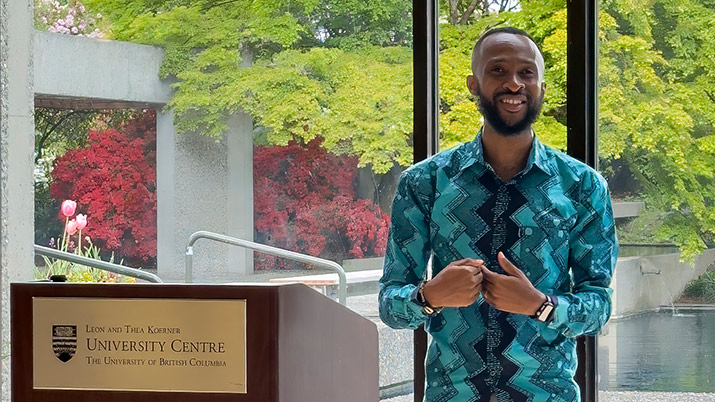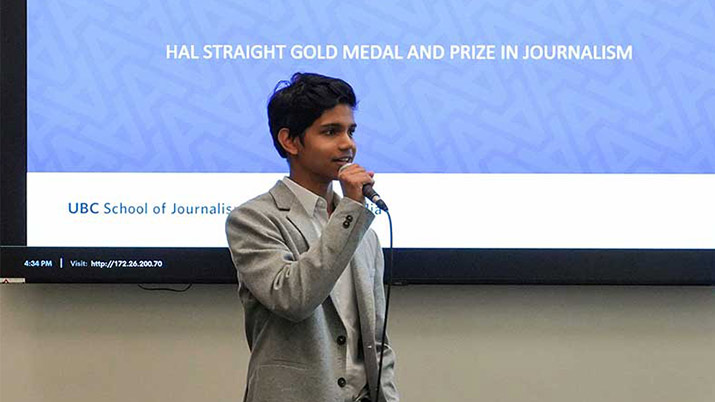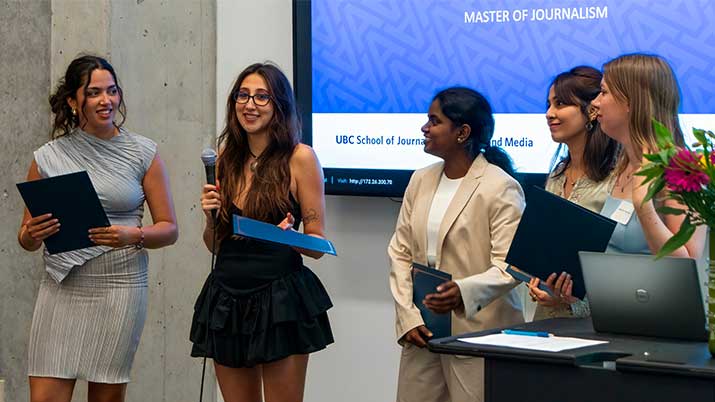The University of British Columbia Graduate School of Journalism’s International Reporting Program has partnered with Al Jazeera English to produce Freedom From Pain, a half-hour documentary that will air on the program People & Power on Wednesday, July 20.
The journalism graduate students and faculty members working with the IRP discovered that more than half the countries in the world have little to no access to morphine, the gold standard for treating medical pain. They traveled to India, Ukraine and Uganda to investigate how countries around the world deal with suffering patients.
Unlike so many global health problems, pain treatment is not about money or a lack of drugs, since morphine costs pennies per dose and is readily available. The IRP found that bureaucratic hurdles, and the chilling effect of the global war on drugs, are the main impediments to access to morphine.
“For a victim of police torture, they will usually sign a confession and the torture stops,” Diederik Lohman of Human Rights Watch, says in the film. “For someone who has cancer pain, that torturous experience continues for weeks and sometimes months on end.”
The documentary shows a former KGB agent in Ukraine who is dying of end-stage prostate cancer and sleeps with a gun under his pillow, in case the pain gets unbearable. He is saved by a brave young Ukrainian man who has resorted to trafficking narcotics to get patients access to morphine, risking up to five years in prison if he’s caught. The documentary crew also went to the United Nations to challenge diplomats on the blunt drug laws that curtail access to legitimate medical opiates, and the executive director of the UN Office of Drug Crimes admits on camera that the side effect of his work is that patients around the world suffer needlessly.
This is the third project of the IRP. Their first documentary, “Ghana: Digital Dumping Ground,” was produced in partnership with PBS Frontline/WORLD and won the 2010 Emmy Award for Outstanding Magazine Investigative Reporting. Their second project, “Cheap Shrimp: Hidden Costs,” was an online multimedia project for the Globe and Mail, Canada’s national newspaper.
“This story about global morphine shortages is one of those stories that both the media and the medical community have overlooked,” says Prof. Peter W. Klein, a former 60 Minutes producer who led the project and is director of School of Journalism. “I’m proud we’ve been able to shed light on this hidden human rights crisis.”
This year’s student team included: Jes Abeita, Sarah Buell, Rebecca Cheung, Evan Duggan, Daniel Hallen, Emily Jackson, Jenna Owsianik, Niamh Scallan, and Robyn Smith. Adjunct professors Trisha Sorrels Doyle, Dan McKinney and Sarah Carter led teams in the field, and Kim Frank was editor.
The film is part of a new partnership between the School of Journalism and Al Jazeera. Collaborations like this are part of a growing trend with major media outlets and universities in North America.
The International Reporting Program is the result of a gift from Alison Lawton and Mindset Social Innovation Foundation to the School of Journalism.
For more information:
Ghana: Digital Dumping Ground: http://www.pbs.org/frontlineworld/stories/ghana804/
Mindset Social Innovation Foundation: http://www.mindsetfoundation.com/
International Reporting Program: www.internationalreporting.org


